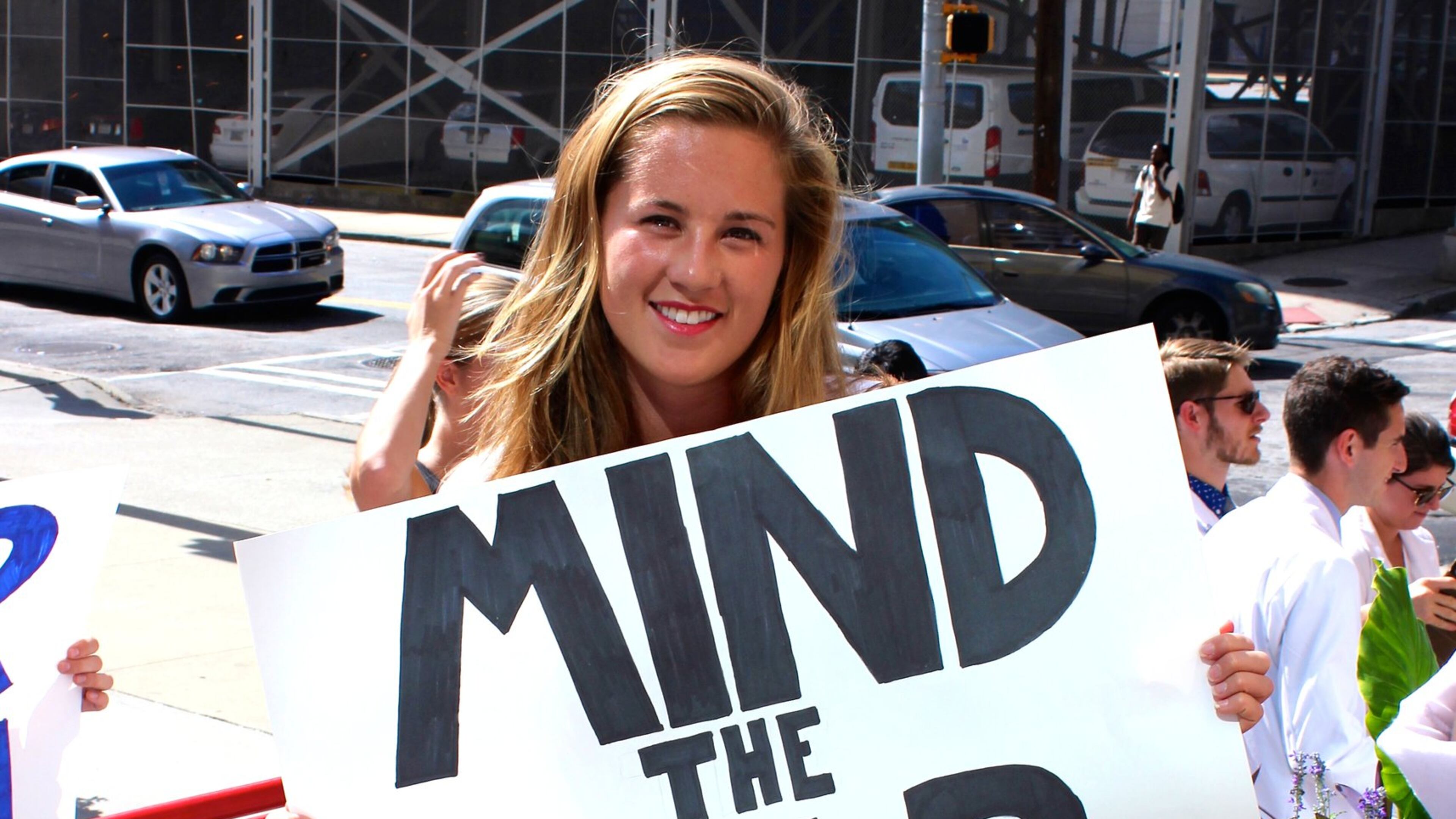Sunday Conversation with Alex Ernst

For more information on H-STAT: www.hstat.org.
Emory medical student Alex Ernst is putting in 14-hour days learning to be a doctor. In all that spare time, Ernst attends committee meetings and chats up lawmakers at the Gold Dome to convince them to expand Medicaid and insure up to 400,000 low-income Georgians. Ernst is a member of Health Students Taking Action Together, a nonprofit focused on getting health care for all Georgians. “If I don’t advocate now, this issue is not going to change and my patients won’t have health insurance when I am practicing,” Ernst said. “It is a now or never issue for some patients.”
Q: Why do you want to be a doctor?
A: Being a doctor is something I always just wanted to do. Every step I took in that direction — whether it was volunteering at a children's hospital or being drawn to health classes in school — affirmed that being a doctor is the best way for me to make a difference.
Q: Can you talk more about H-STAT?
A: There are three components. The education team coordinates to educate individuals on health care issues. The advocacy team plans legislative events and an annual rally or candlelight vigil to honor the lives lost due to the lack of access to health care. The service component includes "Cut Hypertension," an education program based out of barbershops, and "Steppin' For Health," a youth-centered nutrition and exercise program.
Q: How many schools are involved in H-STAT?
A: Emory, Georgia State, Morehouse School of Medicine, Medical College of Georgia, Mercer and the Philadelphia College of Osteopathic Medicine. We have medical students and students studying business, law, nursing, pharmacy, physician assistance, physical therapy and public health.
Q: What are your big issues this year?
A: The main thing is Medicaid expansion. We're also looking at issues of reproductive justice, network adequacy and the tax on tobacco products. The tax brings in $180 million a year but the actual cost of smoking on Georgia's health system is four to five times that.
Q: How would you diagnose Georgia’s health?
A: We are ranked 48th in the country for people who are uninsured. Several sources have calculated that 1,700 Georgians' lives could be saved every year if we closed the coverage gap. Eight rural hospitals have closed since 2011. We're second highest in the country in pregnancy-related deaths and 12th highest in infant mortality.
Q: What is H-STAT doing to make change?
A: We are focusing on physicians who want to stay in Georgia, such as myself, reaching out to legislators and attending committee hearings.
Q: Were you surprised at how many people don’t have access to affordable health care?
A: I knew the numbers but didn't know who was in the coverage gap. Actually, it is rural farmers and veterans. Not all veterans qualify to be part of the VA health system, which was news to me. And some veterans who risked their lives defending this country can't access services that they have a right to. I find that shocking.
Q: Do you think change will occur?
A: Yes, because state government is at a point where something has to be done. Some pregnant women are more than 45 minutes away from an obstetrician. More rural hospitals are at risk of closing. Large metropolitan areas can't provide health care for the whole state.

